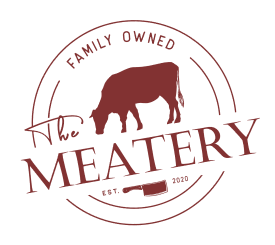The issue of counterfeit Halal Wagyu beef (and Wagyu Beef in general) is a significant concern in the global meat market. Authentic Wagyu comes with strict certification and traceability measures, yet fraudulent products continue to appear in various markets. Many restaurants and retailers may claim to offer Wagyu beef while actually serving lower-grade alternatives or cross-bred cattle products.
To identify genuine Wagyu, you should look for several key indicators:
- Certificate of authenticity with a unique identification number
- Distinct marbling pattern characteristic of Wagyu beef
- Proper documentation showing the cattle's lineage
- Legitimate supplier certification from Japanese or recognized international authorities
The prevalence of fake Wagyu has led to stricter regulations in many countries. True Wagyu beef possesses specific genetic markers and comes from designated Japanese cattle breeds: Japanese Black (Kuroge), Japanese Brown (Akage), Japanese Shorthorn (Nihon Tankaku), and Japanese Polled (Mukaku).
When specifically seeking halal Wagyu, the authentication process becomes even more crucial. Legitimate halal Wagyu providers maintain both Wagyu certification and halal certification, ensuring compliance with both quality standards and religious requirements.
Halal Certification Of Wagyu Beef
Halal certification for Wagyu beef involves a comprehensive process that ensures compliance with Islamic dietary laws while maintaining the premium quality associated with Wagyu. The certification process encompasses several critical aspects:
- Proper slaughter methods according to Islamic principles
- Complete segregation from non-halal products
- Regular auditing by certified halal authorities
- Transparent supply chain documentation
Certified halal Wagyu must meet both the stringent requirements of Wagyu breeding and raising standards while adhering to halal principles throughout the entire production process. This dual certification ensures that Muslims can enjoy this premium beef without compromising their religious beliefs.
The certification process involves regular inspections, documentation reviews, and verification of all processing facilities. Many reputable halal certification bodies worldwide now specifically certify Wagyu products, recognizing the growing demand for premium halal beef options.
Availability And Variety
Halal Wagyu products have become increasingly available in global markets, offering various cuts and grades to suit different culinary preferences. The range typically includes:
- Premium steak cuts (ribeye, striploin, tenderloin)
- Specialty cuts for traditional Japanese dishes
- Ground Wagyu for gourmet burgers
- Wagyu specialty products like dried beef and jerky
The availability varies by region, with major cities typically offering the widest selection. Specialty butchers and high-end restaurants often carry certified halal Wagyu, however because of TheMeatery.com you can get Halal Wagyu sent straight to your doorstep!
Comparative Wagyu Types
Different types of Wagyu beef offer unique characteristics and quality levels:
- Japanese Wagyu (Washuu): The highest grade, exclusively from Japanese bloodlines
- Australian Wagyu: Often crossbred with local cattle, offering good quality at lower prices
- American Wagyu: Typically crossbred with Angus cattle, providing a unique flavor profile
When it comes to halal certification, each type maintains its distinct qualities while adhering to Islamic dietary laws. The marbling, texture, and flavor profiles remain consistent with their non-halal counterparts.
Emphasis On Ethical Sourcing
Ethical sourcing in halal Wagyu production combines traditional Japanese cattle-raising methods with Islamic principles of animal welfare. Key aspects include:
- Humane treatment throughout the animal's life
- Natural feeding programs without prohibited substances
- Stress-free environments for cattle
- Sustainable farming practices
Producers must maintain transparent documentation of their practices, ensuring both the quality standards of Wagyu and the ethical requirements of halal certification are met. This dual focus on ethics has led to increased consumer trust and demand.
Is tajima Wagyu halal?
Tajima Wagyu, originating from the Tajima strain of Japanese Black cattle, can be halal-certified when processed according to Islamic requirements. However, not all Tajima Wagyu is automatically halal. You should specifically look for Tajima Wagyu products that carry proper halal certification.
The availability of halal-certified Tajima Wagyu is more limited compared to other Wagyu varieties, primarily due to the specialized nature of this premium beef and the additional requirements for halal certification.
Is Aldi Wagyu halal?
Aldi's Wagyu beef products are not typically halal-certified. While Aldi offers Wagyu-style beef products at competitive prices, these products generally don't carry halal certification. If you are seeking halal Wagyu, you should specifically look for products with proper halal certification from recognized authorities.
It's important to note that Aldi's Wagyu offerings are often Wagyu-cross breeds rather than pure Wagyu, and their halal status should be verified through official certification if required for dietary purposes. Muslims seeking halal Wagyu should consult specialized halal butchers or certified suppliers rather than making an assumption at a general retailer like Aldi.










